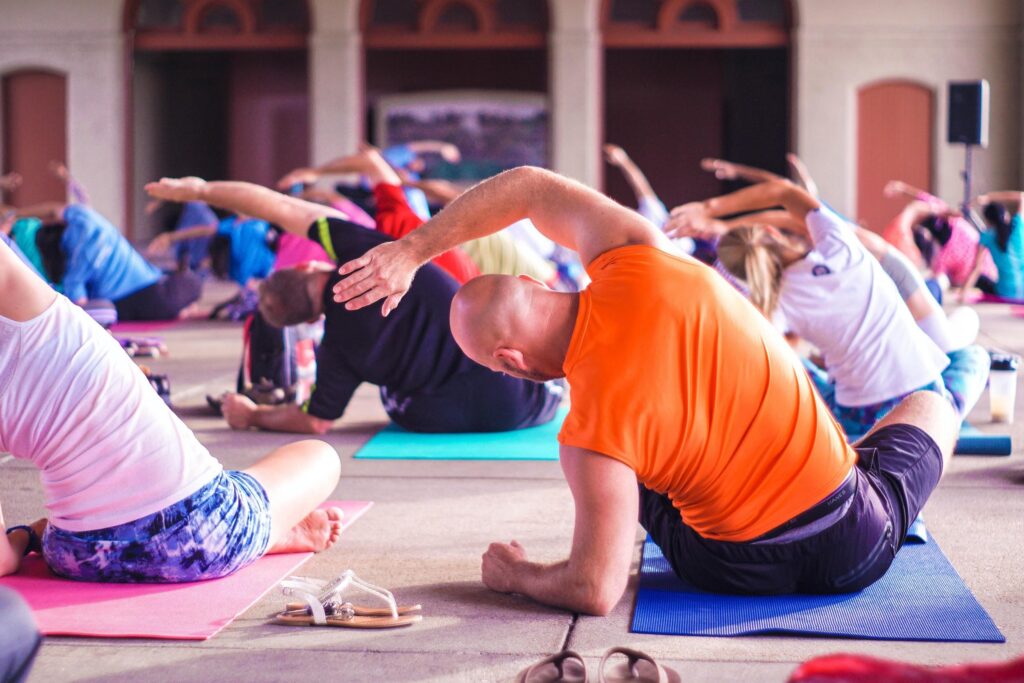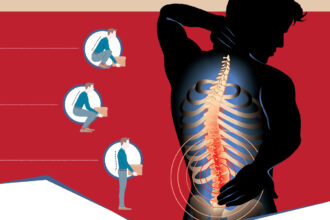This is a crucial aspect of leading a healthy and fulfilling life. It encompasses more than just physical exercise; it involves a holistic approach to wellness, including nutrition, mental health, and lifestyle habits. This blog aims to provide a comprehensive overview of fitness, offering insights into effective exercise routines, balanced nutrition, and practical tips to help you achieve your goals.
Understanding Fitness
It is often associated with physical exercise, but it is a broader concept that includes various elements contributing to overall health and well-being. At its core, fitness involves the ability to perform physical activities efficiently and effectively, which can be achieved through a combination of cardiovascular exercise, strength training, flexibility exercises, and proper nutrition.
Physical fitness is typically divided into several components, including cardiovascular endurance, muscular strength, muscular endurance, flexibility, and body composition. Each component plays a role in maintaining overall health and enhancing the quality of life. Cardiovascular endurance relates to the efficiency of the heart and lungs during physical activity, while muscular strength and endurance refer to the ability of muscles to perform and sustain various tasks. Flexibility involves the range of motion of joints and muscles, and body composition reflects the proportion of fat and lean mass in the body.
Effective Exercise Routines

A well-rounded fitness routine should include a mix of cardiovascular exercise, strength training, and flexibility exercises. Incorporating all these elements can help achieve balanced fitness and prevent monotony in workouts.
Cardiovascular Exercise
Cardiovascular, or aerobic exercise, is essential for improving heart health, boosting endurance, and burning calories. Activities such as running, cycling, swimming, and brisk walking elevate the heart rate and improve overall cardiovascular function. At least 150 minutes a week of moderate-intensity cardiovascular activity or 75 minutes a week of vigorous-intensity exercise are advised.
Strength Training
To increase muscle development and strength, resistance training, often known as strength training, entails workouts that concentrate on particular muscle groups. Weightlifting, bodyweight exercises (like push-ups and squats), and resistance band exercises are effective methods for enhancing muscular strength. Strength training should be performed at least two days a week, with a focus on major muscle groups. This type of exercise also supports metabolic health and aids in injury prevention.
Flexibility and Mobility
Flexibility exercises help improve the range of motion and reduce the risk of injuries. Stretching, yoga, and Pilates are popular practices that enhance flexibility and mobility. Incorporating these exercises into your routine can improve posture, reduce muscle tension, and increase overall physical comfort. Make it a point to work on your flexibility two or three times a week.
Balanced Nutrition for Fitness
Nutrition plays a vital role in supporting fitness and overall health. A balanced diet provides the necessary nutrients, energy, and hydration needed for optimal performance and recovery.

Macronutrients
The three primary categories of macronutrients are lipids, proteins, and carbohydrates. The body uses mostly carbohydrates as fuel, particularly while engaging in vigorous exercise. For long-lasting energy, choose complex carbs like those found in whole grains, fruits, and vegetables. For muscles to develop and mend, proteins are necessary. Include protein from lean foods like fish, chicken, beans, and tofu. Although they are sometimes misinterpreted, fats are crucial for the synthesis of hormones and general health. Choose healthy fats from nuts, avocados, and olive oil, among other sources.
Micronutrients
Vitamins and minerals are essential for various bodily functions and overall health. Ensure a diverse intake of fruits and vegetables to meet your micronutrient needs. Key minerals such as calcium, magnesium, and iron are particularly important for bone health, muscle function, and energy production.
Hydration
Staying hydrated is critical for maintaining performance and supporting bodily functions. Water is the best choice for hydration, but electrolytes are also important for longer or intense exercise sessions. Drink water consistently throughout the day and adjust your intake based on activity levels and environmental conditions.
Meal Timing and Composition
Proper meal timing can enhance exercise performance and recovery. Eating a balanced meal containing carbohydrates and protein before and after workouts can help fuel your exercise and aid muscle recovery. Avoid heavy or greasy meals close to workout times, as they may cause discomfort.
Setting and Achieving Fitness Goals
Establishing attainable and reasonable fitness objectives can provide you focus and drive. Objectives ought to be time-bound, relevant, quantifiable, attainable, and specific (SMART). For example, instead of setting a vague goal like “get fit,” aim for something specific like “run a 5K in under 30 minutes within three months.”

Tracking Progress
Monitoring your progress helps in staying motivated and making necessary adjustments to your fitness plan. Use fitness trackers, apps, or journals to record workouts, nutrition, and other relevant metrics. Regularly review your progress to celebrate achievements and identify areas for improvement.
Overcoming Challenges
It’s common to face obstacles such as lack of time, motivation, or encountering plateaus. Address these challenges by finding creative solutions, such as incorporating shorter, high-intensity workouts or finding a workout buddy for accountability. Remember, consistency is key, and making gradual adjustments can help in overcoming difficulties.
Maintaining a Balanced Lifestyle
Fitness is not just about exercise; it’s also about maintaining a balanced lifestyle. Ensure adequate rest and recovery, manage stress, and prioritize sleep. A holistic approach to fitness includes taking care of your mental, emotional, and physical well-being.
Explore more Relationship Between Humans and Connection to Nature
The Role of Mental Health in Fitness
Mental health is closely linked to physical fitness. Exercise on a regular basis has been demonstrated to lessen stress, anxiety, and depression symptoms. Engaging in physical activity can release endorphins, which improve mood and overall mental well-being. Incorporating mindfulness practices, such as meditation or deep breathing exercises, can further enhance mental health and support a balanced routine.









